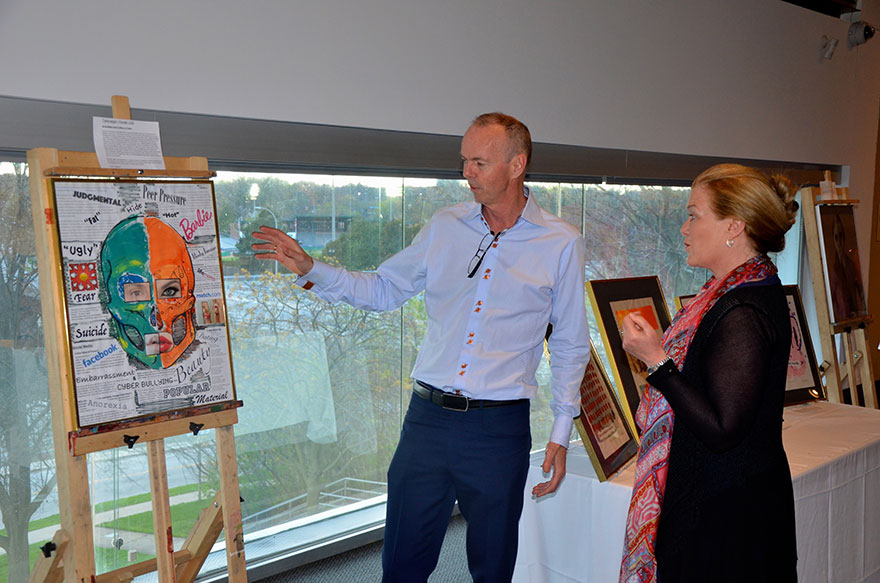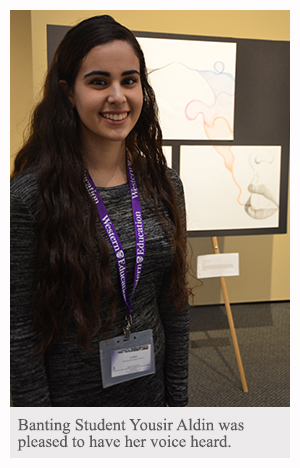
Education professor Michael Kehler teamed up with local high schools to have students create a variety of works of art that represented their own perceptions of youth sexuality and sexual culture.

Education professor Michael Kehler teamed up with local high schools to have students create a variety of works of art that represented their own perceptions of youth sexuality and sexual culture.
After watching the public tensions that emerged between parents and school boards over Ontario’s revised sex-ed curriculum, introduced in September, Western University Associate Professor Michael Kehler argues some parents have done their children a disservice.
“Parents voices were heard loud and clear after the Province introduced the new curriculum,” said Kehler. “They removed their kids from schools, they wrote letters and they stood with placards in the streets. But in doing so, they denied the voices of the individuals most directly affected by this curriculum – their own children.”
As such, Kehler recently undertook a project designed to put youth voices back into the sex-ed discussion. In a partnership with the art departments at London’s Central Secondary School and Sir Frederick Banting Secondary School, he had students create a variety of works of art that represented students’ own perceptions of youth sexuality and sexual culture.
The finished pieces were recently displayed at a special art exhibit – Sex Education, Youth Culture and the Voices we missed – at Museum London.
The partnership turned the tables and enabled youth to lead the conversation about sexuality and subjects like youth identities, media images, body image and sexting, said Banting Secondary School art teacher, Leslie Putnam.
“We as adults can talk about our various ideas of how we’ll educate these students, but they know what they want to learn and discuss, they know what they need to know. This project has given them the chance to step out into the world with their work and tell us,” she said.
 For Banting art student Yousir Aldin, the collective pieces of art exemplified the large variety of opinions that can exist within a group of students.
For Banting art student Yousir Aldin, the collective pieces of art exemplified the large variety of opinions that can exist within a group of students.
“You can see all the different reactions and feelings towards this subject, artist by artist, based on their work,” she said. “We all want to be able to explore our personal feelings about sexuality and how it influences us as unique people, but our voices aren’t always heard, so this was a great experience.”
Kehler is now planning to use the students’ artwork to help inform the next stage of his SSHRC-funded research – an international symposium hosted at the Faculty of Education.
Entitled, Moving Forward: Identities, sexting, schooled bodies and the curriculum that frames us, the symposium takes place May 22 - 25, and will see national and international experts, keynote speakers and guest panellists gather together to discuss how educational curriculum can address the ever-changing world of youth sexual culture.
The key to the symposium’s success will be the unfiltered youth perspective, said Kehler.
“Parents being involved in sex education is terrific, but a general discussion about the birds and the bees is very different from talking about what our youth currently have to navigate. We’re using the youth feedback to take an educational, research-informed approach to looking at where the curriculum is today, and where it needs to be in the future.”